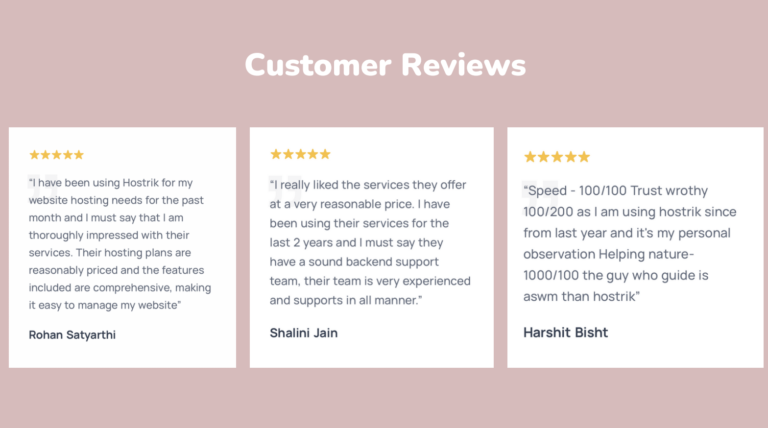Mastering Web Hosting for Freelancers: The Ultimate Guide to Building a Powerful Online Presence
Introduction to Web Hosting

Web hosting is the backbone of every website you visit on the Internet. A service that enables individuals, businesses, and organizations to use their websites worldwide. Simply put, web hosting is like renting space on a server where your website’s files, data, and content are stored.
When creating a website, you need a place to store all the files that make up your site, such as HTML, CSS, images, and videos. Web hosting providers provide servers specifically designed to store and deliver these files when visitors access their site through a web browser. Web hosting services come in many types, including shared hosting, virtual private servers (VPS), dedicated servers, and cloud hosting. Each type has its benefits and suits different needs and budgets.
Choosing the right web hosting provider and plan is critical to your website’s success. Factors such as uptime, security, scalability, customer support, and price should be carefully considered when making your decision.
This detailed guide explores the world of freelance web hosting by providing valuable information, tips, and tricks to help you build and maintain a strong online presence for your freelance business.
Understanding the Basics of Web Hosting

Web hosting services allow people and organizations to make their websites available on the Internet. A website is made up of many types of files and data that must be maintained and made accessible to users. The hardware and software required to store these files on a server are provided by the web hosting service.
A request is sent to the server hosting your website when someone types your website domain name into their web browser. The appropriate files are then retrieved by the server and returned to the visitor’s device so they can view your site.
Web hosting includes several important components.
Server: A powerful computer that stores your website’s files and makes them available to your visitors. Our servers are designed to run 24/7 to deliver your website quickly and reliably.
Storage: Web hosting services provide storage space for storing website files such as HTML, CSS, images, videos, and databases. The amount of disk space you need depends on the size and complexity of your website
.
Bandwidth: Bandwidth is the amount of data that can be transferred between a website and its visitors. This affects how quickly your website loads and how many visitors can visit it at the same time. Higher bandwidth allows for a faster and smoother browsing experience.
Domain Name: A domain name is the unique address that visitors use to access a website. It’s important to register a domain name that reflects your brand and business.
DNS (Domain Name System): DNS translates domain names into IP addresses, which servers use to locate and serve website files. It acts as an internet directory and connects domain names to their respective servers.
Web hosting services include B. Shared hosting (multiple websites share resources on a single server), VPS hosting (virtual private servers), dedicated hosting (dedicated servers for websites), and cloud hosting (website hosting). ) and offers different types of hosting. ). websites on multiple interconnected servers).
Understanding the basics of web hosting is essential for anyone looking to build an online presence. Choosing the right web hosting service and plan will ensure your website is accessible, secure, and optimized for a pleasant user experience.
Web Hosting for Freelancers

As a freelancer, web hosting is an important part of your online presence. Choosing the right hosting provider is very important to keep your website running smoothly and securely. With so many different hosting options, it can be difficult to decide which one is right for you.
When choosing a web hosting provider, it’s important to determine your needs. Need lots of storage space? Do you want a hosting provider that offers website-building tools? Looking for a web host that offers great customer service? Taking the time to answer these questions will help you find the right hosting provider for your freelancer can do.
Once you know what you need, you can start researching different hosting providers. There are some important characteristics to consider when choosing a web hosting provider. First, you need to make sure your hosting provider offers reliable uptime and good customer service. Uptime is important to keep your website available. Good customer service is also important to ensure that you get help when you need it.
Also, you should make sure that your hosting provider offers good security features. This includes secure servers, data backups, and malware scanning. These features help keep your website safe.
Finally, you should consider the cost of web hosting. Some hosts offer cheap plans, but it’s important to make sure your hosting provider is reliable and offers the features you need. You don’t want to choose a cheap hosting plan that doesn’t offer the features you need.
Choosing the right web hosting provider is not difficult. Please take the time to answer the questions above. Be confident that you have chosen the best hosting provider for your freelance business. A good hosting provider can keep your website running smoothly and securely.
Key Factors to Consider Before Choosing a Web Hosting Provider

Determining Your Website’s Requirements
Determining the hosting requirements for your website is essential. Think about elements such as website size, anticipated traffic, and content genres. Choose wisely if you want a lot of storage, bandwidth, or frequent changes. Analyze your needs for support, security, and scalability. You can choose the best web hosting package for the best website performance by weighing these requirements.
Evaluating Hosting Types: Shared, VPS, Dedicated, and Cloud
You can pick from shared hosting, VPS, dedicated hosting, and cloud hosting while comparing various hosting types. Despite sharing resources with other websites, shared hosting is less expensive. You have more freedom and control with a VPS. The highest possible degree of performance and security is provided by dedicated hosting with dedicated servers. The flexibility and scalability of cloud hosting are provided via a network of linked servers. When deciding on the finest hosting solution for your website, take your requirements and budget into account.
Assessing Scalability and Future Growth Potential
The success of your website depends on how well it can scale and how much future expansion it can support. As your website expands, think about how readily your hosting option can handle rising traffic and resource needs. Look for hosting choices that allow for resource allocation and smooth upgrades, such as cloud hosting or VPS. Make sure your hosting provider can meet your needs without interfering in the future. You can select a hosting option that supports your website’s expansion and prevents constraints in the future by considering scalability and growth potential.
Analyzing Uptime and Reliability
When selecting a web hosting service, it is essential to consider uptime and dependability. The proportion of time consumers can access your website is referred to as uptime. To make sure your website is accessible at all times, seek out providers who offer high uptime percentage guarantees, preferably 99% or above. Network infrastructure, backup procedures, and server stability are all included in the concept of reliability. To evaluate a provider’s track record of dependability, look into its reputation and customer feedback. You can make sure that your website visitors have a smooth and uninterrupted experience by giving uptime and dependability a high priority.
Examining Security Features and Backup Options
To safeguard your website and data, it’s essential to look at security features and backup choices. Look for web hosting companies that have strong security safeguards like firewall protection, virus scanning, and SSL certifications. Additionally, find out if they regularly back up the data on your website to protect against data loss or system problems. Think about their alternatives for data redundancy and catastrophe recovery. You can protect the integrity and safety of your website and reduce risks by carefully analyzing security features and backup choices.
Exploring Web Hosting Features for Freelancers

Essential Features for Freelancers’ Websites
Domain Registration and Management
For creating and sustaining your internet presence, domain registration, and management are crucial. Select a reputable domain registrar that provides affordable prices and complete domain management features when registering a domain. Make certain the registrar offers simple domain transfers, DNS administration, and WHOIS privacy protection. Keep your domain registration information correct and current by periodically reviewing and updating it. Effective domain administration guarantees a seamless user experience for your visitors and gives you complete control over your website’s online identity.
Email Hosting and Management
Email management and hosting are essential for creating professional communication for your company. Find a trustworthy email hosting company that provides email services that are both secure and packed with features. Storage capacity, attachment size restrictions, spam filtering, and mobile access are a few things to think about. Check to see if the service provider makes it simple to set up and maintain email accounts, aliases, and distribution lists. Additionally, seek services that offer data encryption, backup, and uptime guarantees. You can successfully connect with clients, partners, and workers while upholding security and productivity by selecting the correct email hosting and management provider.
SSL Certificates and Website Security
For you to maintain the confidence and security of your website visitors, SSL certificates and website security are essential. Sensitive information, including passwords and payment information, is protected when data is exchanged between your website and visitors’ browsers thanks to an SSL certificate. Additionally, it makes the URL’s “https” and the padlock symbol visible, denoting a secure connection. Building trust with your audience through the secrecy and integrity of data is ensured by a trustworthy SSL certificate. To protect against potential threats and weaknesses, it’s crucial to establish strong website security features including firewall protection, malware scanning, and frequent security updates. You may offer a secure browsing environment and safeguard the information of your users by giving SSL certificates and website security a top priority.
Advanced Features for Enhanced Freelancer Websites
E-commerce Capabilities and Shopping Carts
E-commerce capabilities and shopping carts are essential for businesses selling products or services online. A reliable e-commerce platform provides features like product catalog management, secure payment gateways, and inventory tracking. An efficient shopping cart system allows customers to add items, review their orders, and proceed to checkout seamlessly. Look for e-commerce solutions that offer customization options, integration with popular payment processors, and user-friendly interfaces. Ensuring smooth e-commerce capabilities and a user-friendly shopping cart experience is vital for maximizing sales and providing a positive online shopping experience for your customers.
Database Support and Integration
For storing and managing dynamic material on your website, database integration and support are crucial. To efficiently store and retrieve data, look for web hosting providers who provide support for powerful databases like MySQL or PostgreSQL. Make sure your frameworks or content management systems (CMS) work with the ones you intend to employ. Your website’s operation and responsiveness will be improved by the database’s efficient data retrieval and storage due to the seamless connectivity between your website and it. Prioritizing database integration and support will allow you to efficiently manage and use the data on your website, offering dynamic and interactive features for your users.
Navigating Web Hosting Plans and Pricing

Understanding Different Pricing Models
When choosing a web hosting service, it is essential to comprehend various pricing strategies. Common price structures include shared hosting, where resources are distributed among several websites for a set monthly fee. According to the resources allotted and scalability options, VPS hosting offers tiers of price. The price of dedicated hosting is higher because it allows for exclusive server use. You can pay only for the resources you use using cloud hosting’s flexible pricing model based on resource utilization. Some carriers also provide premium services and add-ons, which may come at an additional fee. Make sure pricing models fit your budget and website requirements by carefully evaluating them. You can select the hosting option that best suits your demands by comprehending the various pricing schemes.
Selecting the Right Hosting Plan for Your Budget
Making the most of your resources requires choosing the appropriate hosting plan for your spending power. Determine your financial limitations first, then rank the items that are most important to you. For smaller websites, shared hosting is often the most affordable option, while VPS and dedicated hosting offer additional resources at a higher cost. With pay-as-you-go methods, cloud hosting gives flexibility. To prevent the requirement for repeated plan upgrades, take into account the scalability and growth potential of your website. To find the best compromise between affordability and performance, carefully examine the rates, features, and dependability of various hosting services. Without sacrificing quality, you may ensure a strong online presence by choosing the appropriate hosting package within your price range.
Exploring Add-ons and Upgrade Options
When thinking about web hosting, it’s crucial to investigate upgrade and add-on choices. Many providers offer extra services and features that might improve the functionality of your website. These add-ons could be website builders, SSL certificates, high-tech security measures, or automated backups. Analyze your unique requirements and weigh the costs and advantages of these extras. The upgrade options that can be used to handle future growth should also be taken into account. Check to see if the hosting company offers variable resource allotment or easy scaling to higher-tier plans. You may adapt your hosting plan to meet changing needs and give your guests a flawless online experience by looking into add-ons and upgrade choices.
Evaluating Money-Back Guarantees and Customer Support
When selecting a web hosting company, it is crucial to assess money-back guarantees and customer service. Money-back guarantees offer peace of mind in the event that you are dissatisfied with the service. Before choosing, be aware of the guarantee’s conditions and timeframe. Additionally, for rapid resolution of any difficulties or concerns, dependable customer care is essential. Search for hosting companies that provide round-the-clock customer service via multiple platforms including live chat, email, or phone. To evaluate the provider’s responsiveness and performance, read customer evaluations and ratings. You can assure a great experience and get the help you require throughout your hosting journey by assessing money-back guarantees and customer support.
Conclusion
In conclusion, web hosting is essential for independent contractors in creating and sustaining their online presence. It gives them the tools they need to promote their talents, connect with potential customers, and make money. Freelancers may make sure their websites are safe, load quickly, and are always accessible to visitors by selecting a reputable web hosting provider. When choosing a web hosting company, freelancers should take into account aspects like price, performance, customer service, and scalability. Regular backups, robust security features, and simple-to-use management tools are other elements that can improve a freelancer’s web hosting experience. Overall, a wise web hosting decision enables freelancers to promote their skills, increase their clientele, and succeed in the online market.






